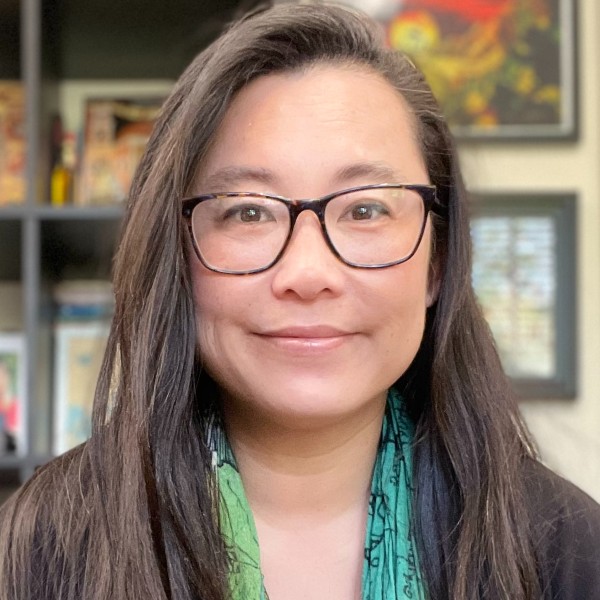I was asked to share a leadership story recently to illustrate the idea that successful organizations are listening organizations. That invitation took me back 25 years, recalling how listening became a Spirit-led practice in the organization I founded and still lead.
It began, as many sacred things do, in casual conversations over cafecito y pan dulce—coffee and pastries shared in living rooms with fellow church members, and around meals after worship. We had no formal agenda or expert facilitators. Just honest conversation, questions filled with equal parts hope and worry:
How do I help my children stay in school?
How do I get them to college if I’ve never been there myself?
How do I keep them from falling into the destructive patterns we’ve seen in our neighborhood?
I was in my early 20s at the time, working as a high-rise architect and beginning to understand the daily realities immigrant families were navigating. People often assumed that my academic degrees meant I had answers, but I didn’t. What I had was a design background, and with that, a deep capacity for listening and observation.
I knew how to sit with questions, learn alongside clients and co-create something new. None of us realized it then, but we were stepping into a journey that would change my life, the lives of those around us and the trajectory of future generations.
That simple act of listening became the foundation for what is now New Generation3 (NG3). More than launching an organization, it revealed something essential: faithful strategies begin by listening to the people God has placed around us.
Listening, as I’ve come to understand it, is not a prelude to action, it is action. And for leaders shaped by faith, it’s also a form of spiritual discernment. It aligns us with reality — organizationally, socially and spiritually — and helps us co-create with God.
In those early days, listening meant gathering students and parents to share their stories. It meant hosting nights at church where young people made vision boards of their hopes, which elders then prayed over each Sunday. It meant connecting a student who dreamed of becoming a lawyer with someone in the congregation who knew an attorney to encourage them.
What we heard in those community conversations shaped initiatives. For more than seven years, listening wasn’t just our starting point. It was our strategic advantage, allowing us to build trust, inspire ownership and help families feel seen and heard. In a society that often erased them, listening helped restore their sense of agency.
We had no blueprint or predetermined solutions, just trust and a commitment to show up for each other. As the Spirit moved, a once-siloed congregation became an intergenerational community committed to the next generation’s flourishing.
These grassroots efforts grew into a statewide movement, then a national and international presence. The most transformative work came from sacred moments of listening and our willingness to act on what we heard.
The journey hasn’t been smooth. Institutionalizing the practice of listening to be consistent, honest and equitable is harder than it sounds.
When people feel safe to speak, they name pain, reveal blind spots and voice frustrations. This is holy ground for leadership — when someone risks telling the truth, and we are called to stay present.
Listening may require changing course. Letting go of programs that no longer serve. Pausing projects we love. Restructuring teams to better reflect the communities we walk alongside.
While it’s tempting to stick with the familiar, especially when resources are tight, we’ve learned that the status quo often stifles innovation and hinders our response to the Spirit’s invitation to grow.
Listening has helped us remain agile and provided clarity. It’s kept us grounded in our mission: “Connecting People, Expanding Perspectives, and Shaping the Future.”
Strategic planning, then, becomes less about prediction and more about participation. It roots our decisions in reality, shapes them in community and guides them through discernment rather than reaction.
Listening desde las raíces — from the roots, has become our framework for transformation: relational and structural; organic and strategic; operational and embodied faith.
Listening well takes intention. Methodology and design matter. Without structures that support meaningful participation, the process loses integrity.
Too often, listening is offered with sincerity but without a relational strategy. We hold forums, nod with goodwill and then make decisions behind closed doors.
The goal shouldn’t be consensus or data gathering, it’s deep, meaningful engagement. That means acknowledging, humbly and practically, that our structures must be designed to integrate community voices from beginning to end.
Truly listening means creating environments where everyone has the opportunity to be heard. For some, that might be a survey; for others, it’s a meal and unhurried conversation. We ask: Who is left out? Who holds decision-making power? What shifts could foster deeper participation and shared ownership?
It’s also important to close the loop. People who share insights deserve to know how they shaped action. Even when not all ideas are implemented, naming what we heard builds trust.
These practices aren’t flashy, but they are the quiet, faithful rhythms that hold an organization together and help it grow with integrity.
For Christian leaders, listening is more than a leadership tool. It’s a theological posture.
Jesus didn’t just preach, he listened. To the woman at the well. To the blind man on the roadside. To the grieving sisters of Lazarus. He stopped for those people whom others ignored, heard what was beneath their words, and responded with presence, healing and truth.
That’s the kind of leadership I want to follow — one that doesn’t cling to power but gives it away. One that doesn’t silence difference but honors the strength it brings. One that doesn’t rush for results but moves faithfully, attuned to voices often overlooked.
In a world obsessed with speed and certainty, listening can seem like a luxury. But for leaders committed to lasting impact, it’s essential.
We are reminded in 1 Peter 4:10 (CEV): “Each of you has been blessed with one of God’s many wonderful gifts to be used in the service of others. So use your gift well.”
Listening is a gift. So is leadership, when we understand it as shared life rather than control. Christian leadership isn’t about models or manuals. It’s how we treat others, especially those on the margins and those with whom chemistry doesn’t come easily. It’s how we choose the common good over institutional gain. It’s how we embody communion, participation and mission, wherever we’re called to serve.
So, what would it look like if our leadership started here?
We had no blueprint or predetermined solutions — just trust and a commitment to show up for each other.























